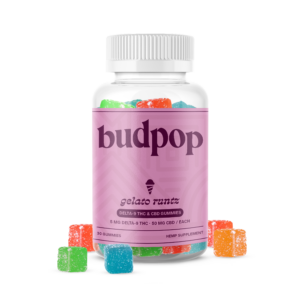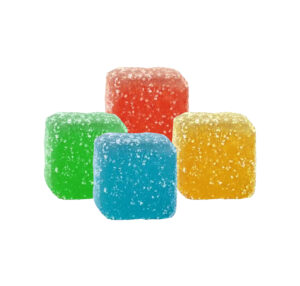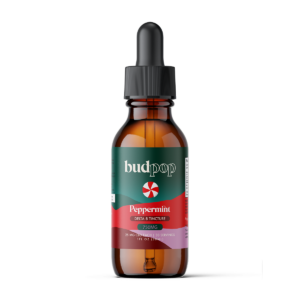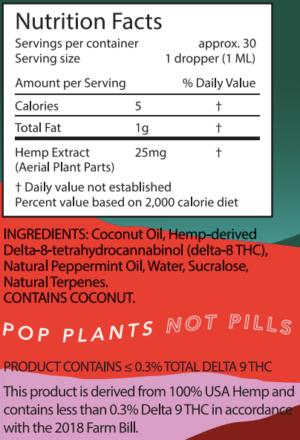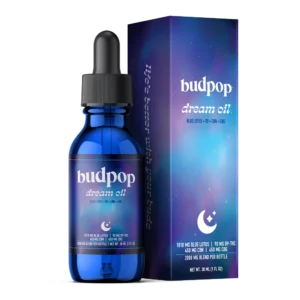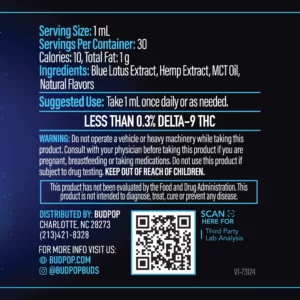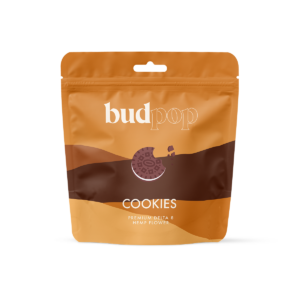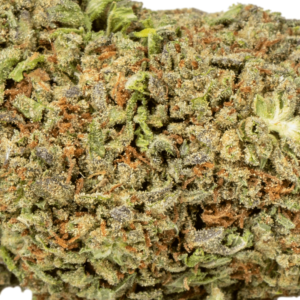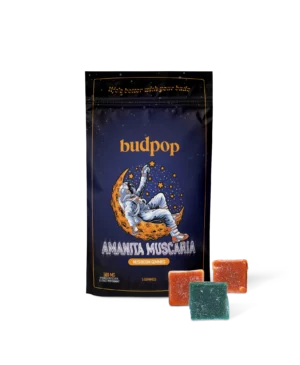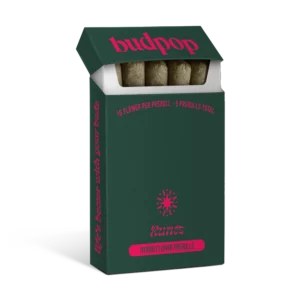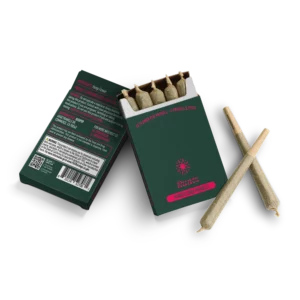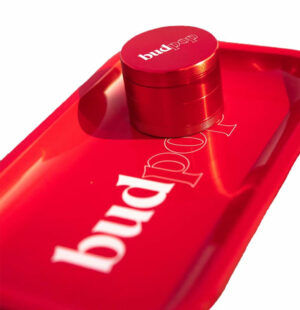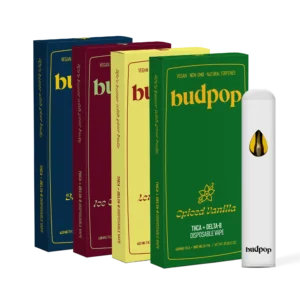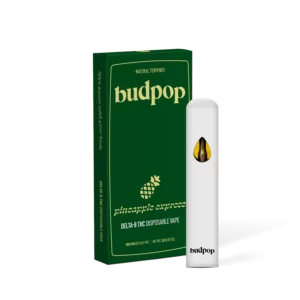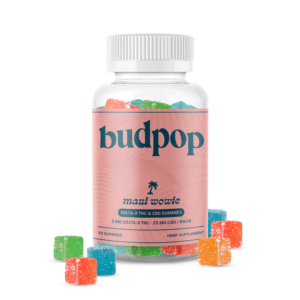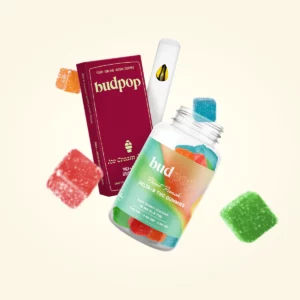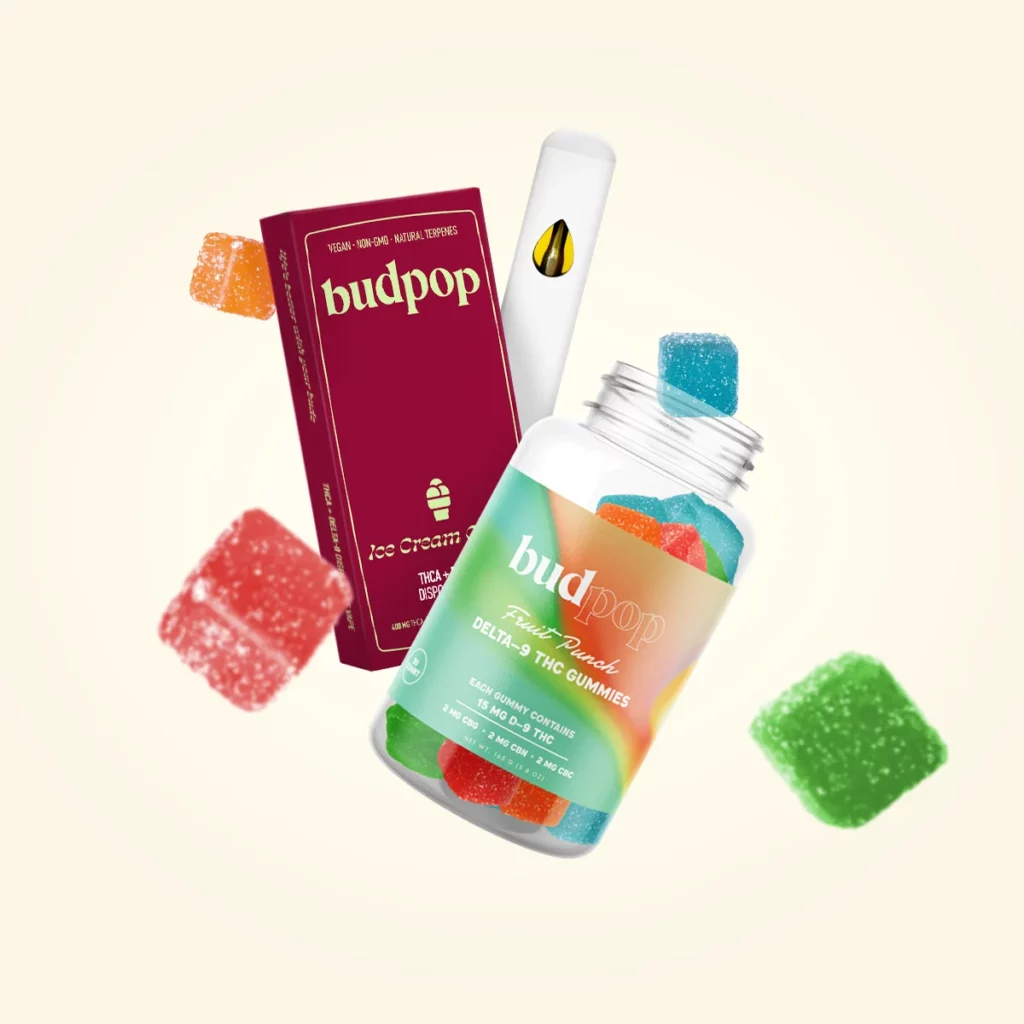![CBG vs CBN [Discover Which Cannabinoid Will Supercharge Your Life!] cbn vs cbg](https://budpop.com/wp-content/uploads/2024/11/cbn-vs-cbg-1.jpg)
CBG vs CBN [Discover Which Cannabinoid Will Supercharge Your Life!]
Once upon a time, most people thought cannabis plants only contained one type of cannabinoid — a cannabinoid now known as Delta 9 THC. However, researchers conducted studies and found hundreds of cannabinoids in cannabis, including some that produce psychoactive effects and some that do not. CBN and CBG are two non-psychoactive cannabinoids, but they’re hardly the same. So, what’s the difference between CBG vs CBN?
The different cannabinoids have varying characteristics and potential health benefits. For example, CBG stands out for its anti-bodily stress and discomfort-relieving properties. CBN is known to improve sleep quality and promote relaxation. But that’s not where their potential benefits end. Keep reading as we explore both cannabinoids and analyze their difference. At the end, you’ll be able to determine which is best for your wellness needs.
Editor’s Note: Budpop does not claim that CBG or CBN can treat, cure, or alleviate specific conditions. This is not an endorsement of these cannabinoids. The following information presents the latest findings from current studies on their potential benefits. Further research is needed to fully assess the efficacy of CBG and CBN in promoting health.
What Is CBG vs CBN?
CBG and CBN are both cannabinoids, naturally occurring, non-euphoric compounds found in the cannabis plant. Both are present in hemp and marijuana plants. However, both are extremely rare; CBG is present in concentrations of 0.1% to 2.0%, while CBN concentration is typically less than 0.1%.
Certain strains can be bred to contain more CBG, upwards of 10 to 15 %. And CBN is a natural product of improperly stored and degraded cannabis flower. Concentrations of CBN can reach as high as 1% in these strains.
Both CBG and CBN are not as well known as other cannabinoids like Delta 9 THC (Delta 9, D9, D9 THC, or THC) and hemp-derived CBD (Cannabidiol). However, they provide their share of potential health and wellness benefits, which we’ll explore later in the article.
Unlike other cannabinoids, you will rarely find these compounds featured heavily in cannabis products. Rather, they may be added to THC or CBD products to provide an entourage effect, helping to enhance other compounds and provide customized outcomes.
History and Evolution
CBG was first discovered in 1964 by Yahiel Gaoni and Raphael Mechoulam. As the mother of all cannabinoids, it is the starting point for THC, CBD, and other cannabinoids. It was considered the missing link in THC biosynthesis.
CBN was first isolated from cannabis extract in 1896. It was discovered by Cambridge researchers Thomas Barlow Wood, W.T. Newton Spivey, and Thomas Hill Easterfield. In the 1930s, British chemist Robert S. Cahn researched CBN. Cahn’s work helped to determine its structure and characterization, contributing to the foundational understanding of cannabinoids.
Both cannabinoids are found in trace amounts in the hemp plant. Therefore, they are more commonly semi-synthetically produced by converting abundant hemp-derived CBD. The result is an ample supply of otherwise rare and hard-to-obtain cannabinoids.
Chemical Structure
The molecular chemical formula of CBG is C21H32O2. It varies from CBD in that it has a propyl group attached to a cyclohexane ring, while CBD has a pentyl group attached to its cyclohexane ring. The positioning of its double bond also varies from CBD and THC. CBG has a double bond between the third and fourth carbon atoms of its cyclohexane ring, while CBD has one between its first and second carbon atoms, and THC has one between its ninth and tenth carbon atoms.
CBN occurs when THC degrades. It loses four hydrogen atoms to achieve the molecular structure C21H26O2. Light and heat facilitate this process.
The varying chemical structures of these minor cannabinoids impact how they react with the cannabinoid receptors in the human body’s endocannabinoid system, providing consumers with varying results.
CBG vs CBN – Differences in Effects
So, what are the differences in effects between CBG vs CBN? Here are some factors that contribute to CBN and CBG effects and availability.
Dosage
A five-milligram dose is a good starting point for both CBG and CBN. However, you will rarely find these minor cannabinoids in isolate products. They are typically combined with other cannabinoids and available in pre-dosed concentrations. Blue Lotus Gummies are a perfect example of this.
Psychoactive Effects
Unlike THC, CBN and CBG do not produce psychoactive effects. Their chemical structures are such that they do not react with the CB1 receptor in the endocannabinoid system, which controls mood and causes euphoric effects.
Rather, they interact with the CB2 receptor that controls body functions like immunity and the body’s response to environmental stress. Therefore, both cannabinoids are effective in targeting various chronic discomfort conditions.
Legal Status
CBN and CBG products are legal as long as they are derived from the hemp plant and do not exceed 0.3% THC. However, they may be mixed with compounds that are not hemp-derived and contain a high THC content. These products are federally illegal and illegal in certain states.
CBN vs CBG Potential Benefits
Let’s compare CBG vs CBN effects and potential wellness benefits to determine which is best suited to your needs.
CBG vs CBN for Anxiety
Anxiousness is a symptom many of us deal with. For some, it’s disabling, interfering with our ability to complete basic tasks. A 2024 study found that CBG may be a novel option for reducing stress and anxiousness and improving mood. As of this writing, there are no current studies on CBN dealing directly with the topic of anxiousness. However, its ability to enhance sleep may be related to reducing anxious feelings.
CBG vs CBN for Pain
Many people suffer from chronic physical discomfort, which can keep them up at night and interfere with daily activities. A 2021 study established CBG as a potent relief aid. CBG may also address weight gain and weight issues, which can reduce discomfort, especially when it comes to joint and mobility impairment. Furthermore, a 2019 animal study found that CBG acts as peripheral relief support, targeting discomfort at its source.
CBG vs CBN for Sleep
Many of us struggle to get to sleep at night. Sleep disorders can lead to irritability, brain fog, and weight gain. An ongoing lack of sleep can also contribute to chronic disease. A 2023 study based on anecdotal evidence revealed CBN’s sedative properties may promote better sleep and support the REM sleep cycle. Similar studies have not been conducted with CBG, but its discomfort-relieving and anxiousness-reducing properties may result in improved sleep.
CBG vs CBN: Differences in Potential Applications
CBG and CBN produce various therapeutic benefits. Here’s what you can expect from each cannabinoid in different applications.
CBG: Potential Applications
- Neuroprotective Properties. CBG offers anti-inflammatory properties and is rich in antioxidants that may improve brain health. This can help with focus and mental clarity.
- Physical Discomfort Relief. The compound reduces inflammation and associated discomfort conditions.
- Assists With Sex Hormonal Dysregulations. Studies have revealed that CBG may possess the ability to regulate hormonal imbalances.
- Reduces Symptoms of Inflammatory Bowel Disease. The cannabinoid’s anti-inflammatory effects may relieve symptoms of inflammatory bowel disease.
- Works as an Antibacterial Agent. CBG has been studied for its antibacterial properties and may be effective in treating diseases typically resistant to antibiotics
- Increases Appetite to Assist With Eating Disorders. Like many cannabinoids, CBG enhances ghrelin production and makes food taste and smell better to increase appetite.
- Supports Bone Healing. CBG may accelerate the rate at which the body absorbs minerals to improve bone healing.
- Helps Clear Skin Conditions. The compound’s anti-inflammatory properties may reduce acne and other inflammatory skin conditions.
CBN: Potential Applications
- Effective Sleep Aid. As previously stated, the compound’s main claim to fame is its sedating properties, which promote enhanced sleep.
- Offers Discomfort Management for Muscle Disorders and Other Conditions. CBN has been shown to offer physical discomfort relief in fibromyalgia and other bone and joint conditions.
- Offers Neuroprotective Effects. Like CBG, CBN may help to support cognitive health. It may also influence synaptic-related genes, altering gene expression related to neurotransmitter release, particularly those linked to calcium, potassium, and specific receptors.
- Stimulates Appetite. CBN increases ghrelin production and enhances the senses to increase appetite and make food taste and smell better.
- Potential Anti-Inflammatory Properties. The compound interacts with the CB2 receptor of your endocannabinoid system to help lower inflammation.
- Wound Healing. CBN inhibits keratinocyte proliferation to help with wound healing.
CBN vs CBG Legal Status
The Farm Bill of 2018 federally legalized cannabis products that are derived from the hemp plant with a THC content of 0.3% or less. As long as hemp-derived CBN and CBG products satisfy these requirements, they are legal at the federal level. Therefore, they are federally legal and have legal status in most states.
However, state laws vary. Many states align with the Farm Bill. Some states allow the cannabis plant regardless of its origins and THC content. In other states, cannabis is still completely illegal.
However, CBN and CBG may be found in products that contain marijuana-derived cannabinoids with high THC concentrations. These products may not be legal in certain states. They may also cause a positive result on a drug test. Plus, the benefits of CBN and CBG will be outshined by THC’s psychoactive effects.
Final Thoughts – CBG vs CBN [Discover Which Cannabinoid Will Supercharge Your Life!]
CBN and CBG are naturally occurring compounds found in cannabis plants. They are present in very small concentrations in both hemp and marijuana. The majority of CBG and CBN products on the market are hemp-derived. Both cannabinoids offer several potential therapeutic benefits that researchers are still studying. Both provide physical discomfort relief. CBG is an excellent choice for reducing anxiousness. CBN is very effective at helping you get to sleep. Neither have psychoactive properties.
Both CBN and CGB offer potential wellness benefits. Choose the one best suited to your needs. But you can choose both. Take CBG gummies during the day to supercharge your wellness and provide a mental boost, and take CBN gummies at night so you can enjoy a peaceful sleep. We hope you find a solution that is right for you.
![CBG vs CBN [Discover Which Cannabinoid Will Supercharge Your Life!] cannabigerol cbg chemicall structure](https://budpop.com/wp-content/uploads/2024/11/cannabigerol-cbg-chemical-structure.jpg)
![CBG vs CBN [Discover Which Cannabinoid Will Supercharge Your Life!] cannabinol cbn chemical structure](https://budpop.com/wp-content/uploads/2024/11/cannabinol-cbn-chemical-structure.jpg)
![CBG vs CBN [Discover Which Cannabinoid Will Supercharge Your Life!] closeup of hemp plant apex](https://budpop.com/wp-content/uploads/2024/11/closeup-of-hemp-plant-apex.jpg)
![CBG vs CBN [Discover Which Cannabinoid Will Supercharge Your Life!] woman relaxing on couch with smile on face](https://budpop.com/wp-content/uploads/2024/11/woman-relaxing-on-couch-with-smile-on-face.jpg)
![CBG vs CBN [Discover Which Cannabinoid Will Supercharge Your Life!] CBG vs CBN [Discover Which Cannabinoid Will Supercharge Your Life!] | BudPop](https://budpop.com/wp-content/uploads/2024/06/BP-BLUE-LOTUS-D9-MOB.webp)
![Delta 9 Near Me [Discover Local Options With Our Easy 4-Step Guide] delta 9 near me](https://budpop.com/wp-content/uploads/2024/11/delta-9-near-me-1-150x150.jpg)
![Delta 8 Near Me [Find D8 Locally in 4 Simple Steps!] delta 8 near me](https://budpop.com/wp-content/uploads/2024/11/delta-8-near-me-150x150.jpg)
![THCP vs THC [Unraveling The Differences] thcp vs thc](https://budpop.com/wp-content/uploads/2024/06/thcp-vs-thc-150x150.jpg)
![THCv vs THC [4 Eye-Opening Insights Into Their Effects] thcv vs thc](https://budpop.com/wp-content/uploads/2024/11/thcv-vs-thc-1-150x150.jpg)
![Delta 8 vs Delta 9 [The Ultimate Comparison Guide] delta 8 vs delta 9](https://budpop.com/wp-content/uploads/2024/11/delta-8-vs-delta-9-150x150.jpg)
![THCa vs Delta 8 [A Comprehensive Guide for Cannabis Enthusiasts] thca vs delta 8](https://budpop.com/wp-content/uploads/2024/11/thca-vs-delta-8-150x150.jpg)
